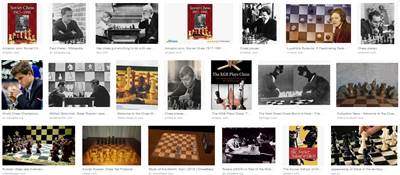Could someone personally recommend a publication on the history of Soviet Chess?
Along with literary luminaries like Leonard Barden, Tim Harding, and Richard James, forum members suggested about a dozen titles. I assembled the following list:-
- Averbakh, 'Centre-Stage and Behind the Scenes'
- Cafferty & Taimanov, 'Soviet Chess'
- Eales, 'Chess: 'The History Of A Game'
- Johnston, 'White King and Red Queen'
- Kotov & Yudovich, 'The Soviet School of Chess'
- Linder, 'Chess in Old Russia'
- Richards, 'Soviet Chess'
- Soltis, 'Soviet Chess 1917-1991'
- Sosonko, 'Russian Silhouettes'
- Spanier, 'Total Chess'
- Wade, 'Soviet Chess'
More accurately, there are 11 titles on the list, of which I have all but three. A title that wasn't on the list, because it was published in September 2013, is:-
- Hudson, 'Storming Fortresses: A Political History Of Chess In The Soviet Union, 1917-1948'
It's available as a PDF from a number of sources, and lately I've been reading it to expand my knowledge of Soviet chess history. Its abstract starts,
From the end of the Second World War through the demise of USSR, Soviet chess players dominated world chess. Not only did they control the world champion title after 1948 (except for the Fischer interlude), they also monopolized all other areas of international chess competition. When the Soviets captured the world title in 1948, this was the culmination of a long, carefully cultivated program to foster a chess community in the Soviet Union. The rationale for this initiative, which engaged the attention of the highest levels of the Soviet state, had deep ideological roots.
This dissertation explores the social/political history of chess in the Soviet Union, particularly its utility to Party and State. The story of Soviet chess begins in the Civil War, when chess was enlisted as a training tool for military recruits. After the Bolshevik victory, a very similar rationale was used to promote chess as an instrument for training Party cadre in the burgeoning Communist Party. The same attributes desired in soldiers were also desired in Party activists, and chess was seen as a tool for nurturing these attributes.
Out of curiosity I ran a search on the general subject and came up with the following.

Google image search on 'chess historians soviet'
[Call the rows 'A' to 'C' (from top to bottom) and number the images in each row '1' to '7' (from left to right).]
In the middle of that screen capture ('B5') is another title that deserves to be on the list:-
- Gulko, Popov, Felshtinsky, & Korchnoi, 'The KGB Plays Chess: The Soviet Secret Police and the Fight for the World Chess Crown'
Since I've read that one as well, I'll spend some time to locate the three other titles that I haven't read.
No comments:
Post a Comment